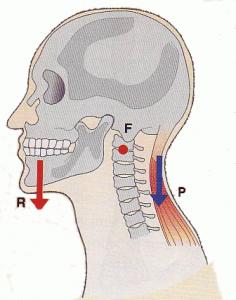In the Land of Metal, there exists a tribe that has upheld the gospel of Manowar with such zeal that it modified their bodies.
Metalheads descend from humans, and may look human at a glance. A more careful examination, however, will reveal the traits their kind has acquired through the ages. These traits allow them to have a lifestyle that would be extremely harmful for humans; the man who tries to live like a metalhead usually does not live long.
Central to the life of the metalhead is headbanging. They bang their heads in the air for a number of reasons:
- To show others their emotional state, such as being happy, content, angry, anxious, frustrated, or simply out of their mind;
- As a greeting or compliment, or to thank someone for something;
- As a reflex to music being played that suits their tastes;
- As a mating display. They seem to be aroused by the flowing long hair of a potential mate oscillating in the air to the sound of metal.
Metalheads are able to bang their heads in the air for hours at a time without the need for rest, and without damaging their necks and brains. They are also able to continuously bang their heads to power metal, even at 180 bpm, with some record beating at 250 bpm. They also maintain this ability as long as they are fertile and sometimes into old age even.
Starting from an average human body for a template, what changes to anatomy would be required to allow for such an amazing headbanging capacity?
I was inspired by Brütal Legend's headbangers for this question:

They have traits such as stronger neck musculature and thick skulls, but I think those are more fit for headbutting than headbanging.

